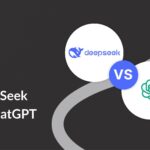The rise of AI agent frameworks: How enterprises are automating complex workflows in 2025
# The Rise of AI Agent Frameworks: A Blueprint for Enterprises in 2025
In the fast-paced world of 2025, businesses are embracing a digital transformation where automation isn’t just smart; it’s self-governing, analytical, and inherently intelligent. AI agent frameworks are at the forefront of this transformation, empowering enterprises to automate intricate tasks, enhance their scalability, and cut down on costs. These frameworks seamlessly integrate cognitive capabilities that significantly boost the precision, speed, and optimization of data-driven tasks across various business sectors.
## The New Wave of Automation
The corporate landscape is witnessing an unprecedented shift. Automation, once confined to rigid process scripts and routine simple-tasks, is evolving into a robust intelligence-driven ecosystem. Gone are the days of basic automation tools. Today, AI agent frameworks are redefining the operational paradigms, enabling businesses to run smarter and more efficiently. Companies are no longer asking if they should automate but rather how intelligently they can do so.
> **”AI agent frameworks—software architectures enabling autonomous agents to interpret tasks, make decisions, and act with minimal human input—are reshaping how businesses operate.”**
### The Anatomy of AI Agent Frameworks
How do these AI frameworks operate, and what makes them uniquely efficient?
– **Natural Language Understanding (NLU)**: This feature empowers agents to parse instructions conveyed in natural language, making them user-friendly and more effective in task execution.
– **Task Planning Engine**: By breaking down large goals into actionable tasks, the planning engine is pivotal in managing workflows and ensuring seamless task execution.
– **Memory and Context Retention**: Agents leverage memory capabilities to recall past interactions, enabling continuity and improving decision-making accuracy.
– **Tool and API Connectivity**: This allows agents to interact with diverse systems such as CRMs and databases, ensuring holistic, interconnected task management.
– **Feedback and Continuous Learning**: Agents use machine learning techniques to learn from past actions and outcomes, refining their processes over time.
### Leaders in the AI Agent Arena
The year 2025 brings forth an impressive array of AI agent frameworks, each catering to unique enterprise needs:
– **AutoGPT**: Focused on long-term goals through autonomous task loops, AutoGPT excels in tasks requiring continuous improvement.
– **LangChain**: Offers a modular setup for managing complex workflows, ideal for businesses requiring custom solutions.
– **AgentGPT**: Known for its user-friendly, browser-based interface, making it perfect for enterprises venturing into rapid prototyping.
– **MetaGPT**: Specializes in software engineering, allowing agents to collaborate by adopting specific roles.
– **CrewAI**: A champion in scenarios demanding multiple agents for task coordination, providing specialized support functions.
– **SuperAgi and OpenAgents**: Tailored for large-scale deployments with features like dashboards and observability for sustained performance.
### Real-World Applications: Unleashing Business Potential
AI agents offer transformative benefits across a multitude of sectors:
– **HR Automation**: Accelerates recruitment processes through resume parsing, interview scheduling, and updates to applicant systems.
– **Customer Support**: Enhances user experience by resolving common inquiries and directing complicated issues as needed.
– **Marketing and Sales**: Facilitates personalized outreach and optimizes marketing efforts based on real-time user engagement metrics.
– **Financial Services**: Assists in audits, compliance reporting, and transaction monitoring, ensuring regulatory standards are met.
– **DevOps and IT Operations**: Automates cloud provisioning, monitors systems, and resolves outages, streamlining operations and reducing downtime.
### Benefits and Challenges: Navigating the AI Landscape
**Key Advantages:**
– **Scalability**: Empower businesses to automate repetitive tasks across multiple departments without inflating workforce needs.
– **Cost Efficiency**: Cut operational costs by minimizing human errors and streamlining processes.
– **Speed and Availability**: Maintain 24/7 operations with rapid task execution, significantly improving service delivery times.
– **Accuracy**: Achieve high precision in task executions, reducing the risk of mistakes.
– **Data Optimization**: Accumulate detailed logs for actionable insights and continuous improvement.
**Challenges Include:**
– **System Complexity**: Requires robust architectures and overseeing tools to prevent unforeseen behaviors.
– **Data Privacy**: Ensures agents handle information with adherence to security and compliance standards.
– **Ethical Considerations**: Regular evaluations are necessary to prevent biases and ensure transparency.
– **Workforce Transformation**: Calls for strategies for upskilling or reskilling employees to adapt to this new integrated environment.
– **Oversight**: Human-in-the-loop strategies remain crucial for auditability and control of AI actions.
### Charting a Path Forward
**How to Effectively Deploy AI Agent Frameworks:**
1. **Initiate with Pilot Projects**: Test the waters with manageable, clear-use cases to showcase their efficacy.
2. **Select Suitable Frameworks**: Choose based on scalability needs, integration capabilities, and existing support networks.
3. **Implement Monitoring Systems**: Use metrics and feedback to enhance agent performance.
4. **Expand Deployments**: Roll out agents across domains while ensuring requisite security and documentation.
## Concluding Insights: Pioneering an Autonomous Enterprise
AI agent frameworks transcend conventional automation—they’re instrumental in shaping the autonomous enterprises of tomorrow. With these frameworks, businesses can not only reduce operational burdens but also enhance their agility and competitiveness. By 2025, companies leveraging AI as collaborative partners rather than mere tools will lead the charge in innovation and efficiency.
**What strides will your business take to align with this intelligent transformation? Will the AI agents in 2025 be your strategic partners in achieving greater efficiency and innovation?**
In embracing AI agent frameworks, businesses are not just automating—they are charting a course toward a future filled with potential and performance.


